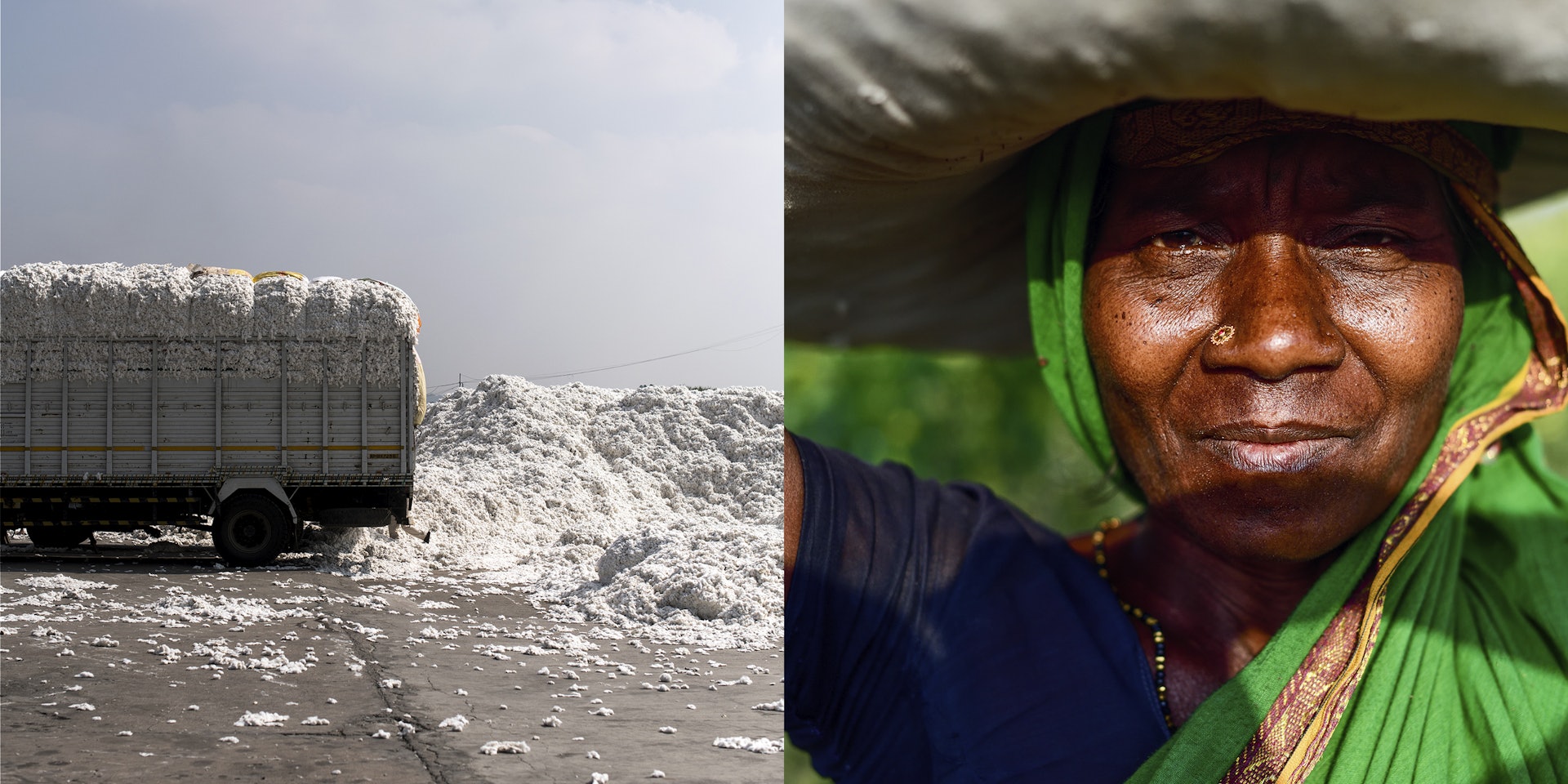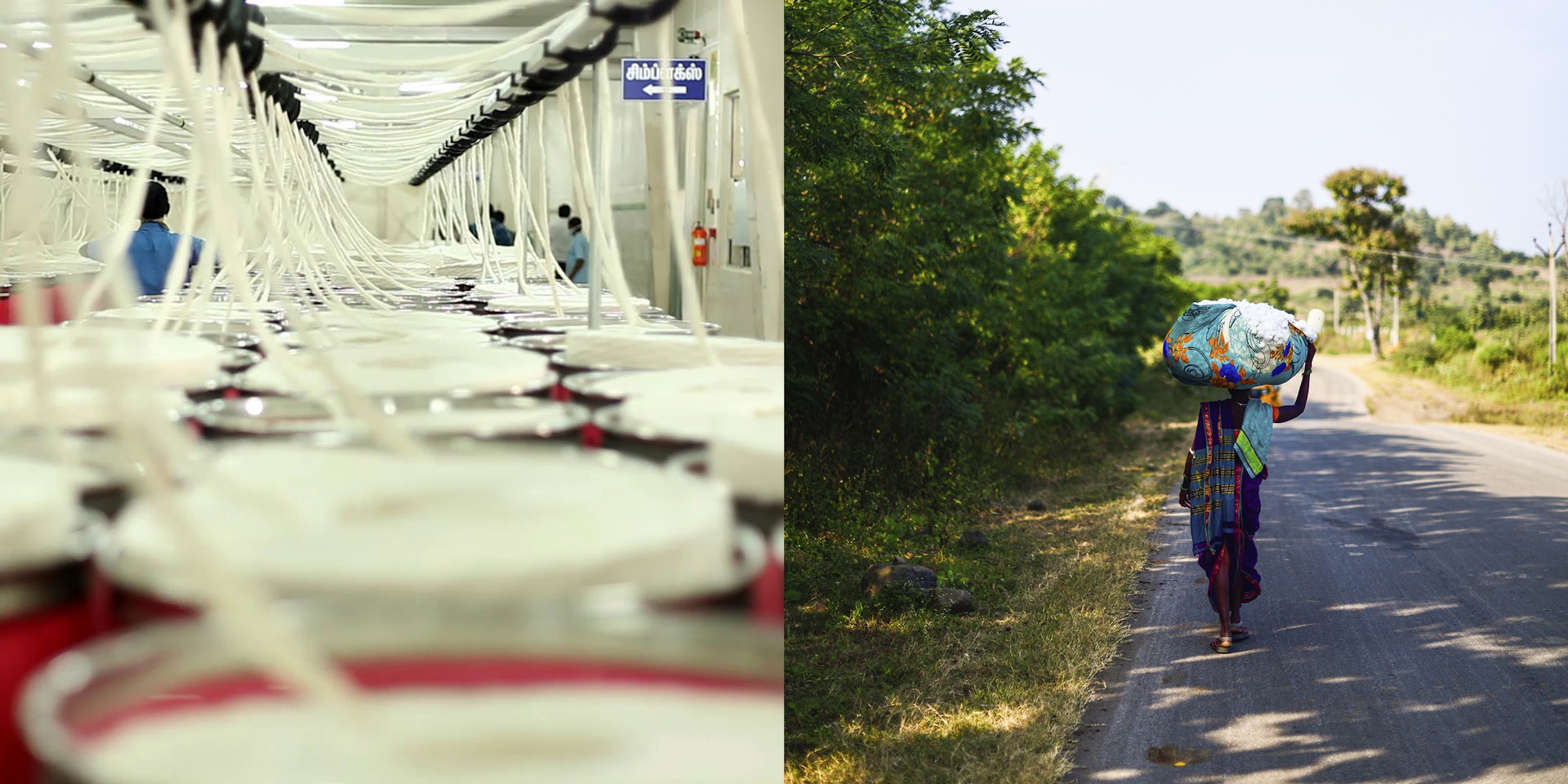Q&A with Sreeranga, founder and CEO of our supplier Dibella India
At Sandqvist we take a lot of pride in the sources of our materials. Our organic cotton, used in bestsellers like Dante and Tony, is grown by independent farmers in the south of India. We sat down with Sreeranga, founder and CEO of our supplier Dibella India, to ask him a few questions.

Q: Sreeranga, tell us a little bit about yourself? Who are you and what’s your background?
A: I come from a family of small scale cotton farmers and have 25 years of experience and expertise in sustainable apparels, especially on product development and supply chain. I’ve devised and implemented sustainability strategies for some of the pioneering ethical brands in Europe. I have an engineering degree in Textiles and MBA from London Business School. I’m passionate about delivering sustainable livelihood for small scale farmers and textile workers.
Q: So as the Founder and CEO of Dibella India – what does your daily work look like?
A: Dibella India has been at the forefront of sustainable initiatives in textiles and apparels for more than seven years now. My daily work involves working closely with customers on new sustainable initiatives that can deliver a deeper and wider impact on the farming and workers community. Also I spend a lot of time on developing new products that are produced with low carbon impact production methods.
Q: When did you at Dibella start working with Sandqvist?
A: I’ve been an admirer of Sandqvist for long for the simplicity of the designs and values. We started working with Sandqvist from 2017 onwards. Product development has been a bit challenging as the focus was on durability and design as much as sustainability and ethical values. With tremendous support and guidance from the Sandqvist team, we managed to achieve required standards.

Q: So why organic cotton?
A: Conventional cotton cultivation involves intense chemical usage as the crop is susceptible to pest attacks. Globally cotton covers just 2.4% of the world’s cultivated land but uses 6% of the world’s pesticides and 16% of insecticides. This has disastrous environmental, economic and health consequences for the small scale farmers. Majority of the cotton farmers live in developing countries, work extremely long hours, are exposed to cancer causing poisonous substances and earning very little in wages or prices.
Organic cotton is grown without any pesticides or harmful chemicals thus enriching soil health and bio-diversity. Since our cotton is totally rain fed, there is no blue water consumption at all. Organic cotton produces around 46% less CO2e compared to conventional cotton.
Since our cotton is fairly traded, farmers get fair produce for the cotton and also Fairtrade premium is used in communal development projects especially around children education, health care and farm improvement.
Q: Where does the organic cotton that Sandqvist uses come from?
A: Cotton is grown by members of Chetna Organic farmer co-operative from Utnoor mandal, Telangana state in India. These are small scale tribal farmers depend on rain water to harvest cotton.